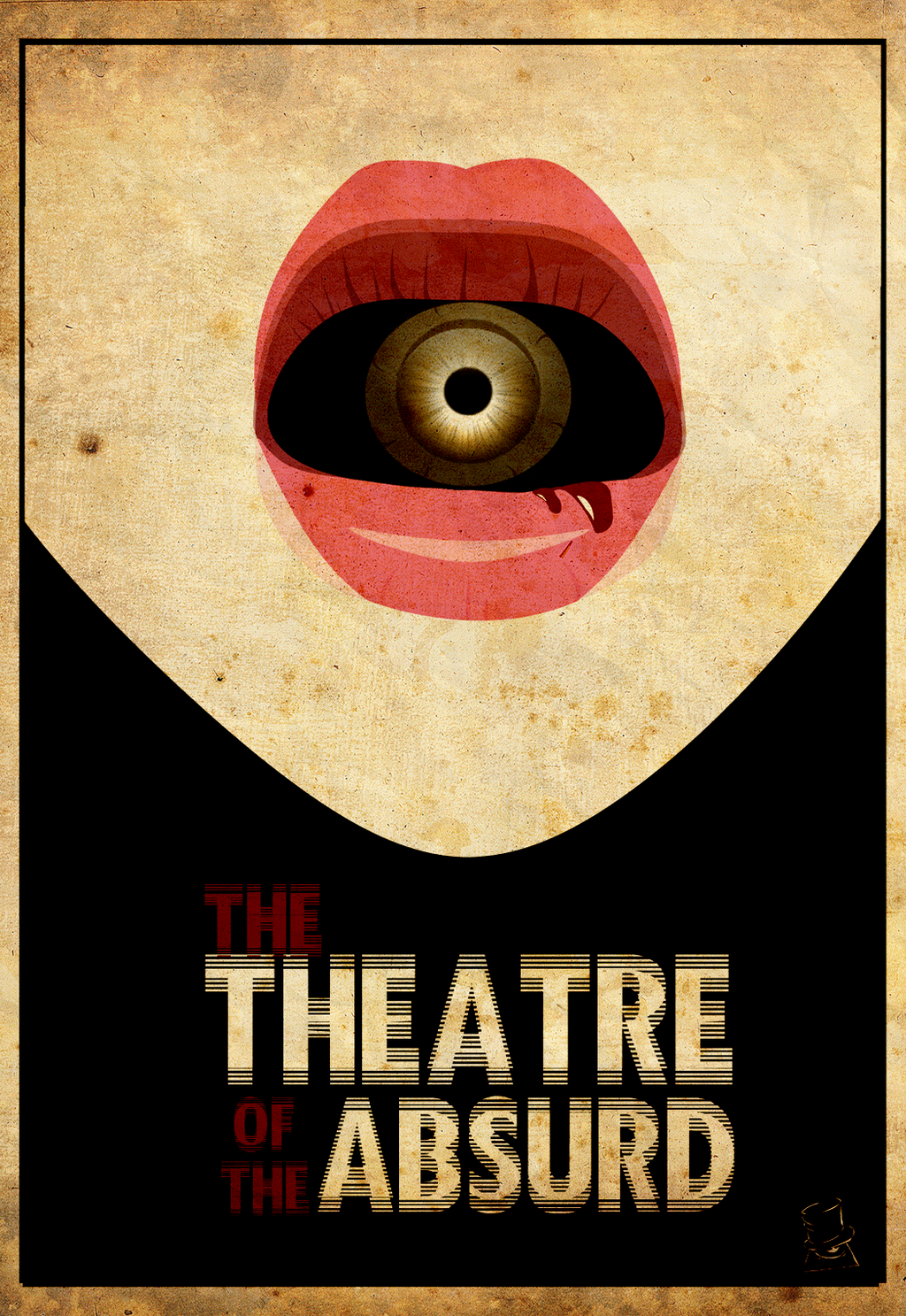THEATRE OF THE ABSURD
By Paloma Moreno, Bautista Vidal, Luna Leveratto, Ma. Agustina Turano and Valentina Abreu Salomón
Theatre of the
Absurd
The term was first used by Martin Esslin, to describe plays that:
- were written in the mid-20th Century
- illustrated a philosophy by Albert Camus which said that'life has no inherent meaning'

"The Theatre of the Absurd strives to express its sense of the senselessness of the human condition and the inadequacy of the rational approach by the open abandonment of rational devices and discursive thought."
Theatre of the Absurd is based in ABSURDIST FICTION:
- focuses on the experiences of characters in a situation where they cannot find any inherent purpose in life
- human existence has no meaning or purpose
- parody or dismissal of realism

Its origins
- After WWII and the Holocaust, world appeared chaotic and meaningless
- Emerged in Paris, as experimental theatre
- "absurd" as out of harmony, not exactly ridiculous
CHARACTERISTICS OF STYLE:
-Language and rhythm:
-Language is often fragmented - Word play - Pauses
-Audience relationship:
-Audience is alienated, teased, puzzled, and disturbed: questions existence and absurdity of life
-Play Structure:
-Plot may be illogical, often no resolution at the end -Juxtaposition of contradictory elements -Plot is both comic and tragic; two aspects of the same situation.
ACTORS:
- Voice:
- Range from clowns to realistic characters
-It is critical that the actors speak very clearly
- Movement and Body Language:
-Contrasts of extremes are often employed in characterization and pace
-Pauses are used to heighten tensions
- External appearance:
-varies from realistic to clown-like
Set:
-Range from minimal and symbolic/stylized sets and props to naturalistic
- Colour can range from colourless, bleak open spaces to naturalistic
- Colour can range from colourless, bleak open spaces to naturalistic
Major Playwrights and plays
· Eugene Ionesco: The Chairs, The Lesson
· Samuel Beckett: Waiting for Godot, Endgame
· Harold Pinter: Pinter Sketches, The Birthday Party:
· Edward Albee: The Zoo Story, The Sand Box
· Alfred Jarry: Ubu Roi
· Harold Pinter: Pinter Sketches, The Birthday Party:
· Edward Albee: The Zoo Story, The Sand Box
· Alfred Jarry: Ubu Roi

Absurdist plays
Catastrophe- Samuel Beckett
https://www.youtube.com/watch?v=iAbGOP7YqlMGroup of students performing Theatre of the Absurd
https://www.youtube.com/watch?v=x71erv-NNH8
Waiting for Godot- Samuel Beckett
https://www.youtube.com/watch?v=X7_g52JrshE&list=PLB6390868403E6450
